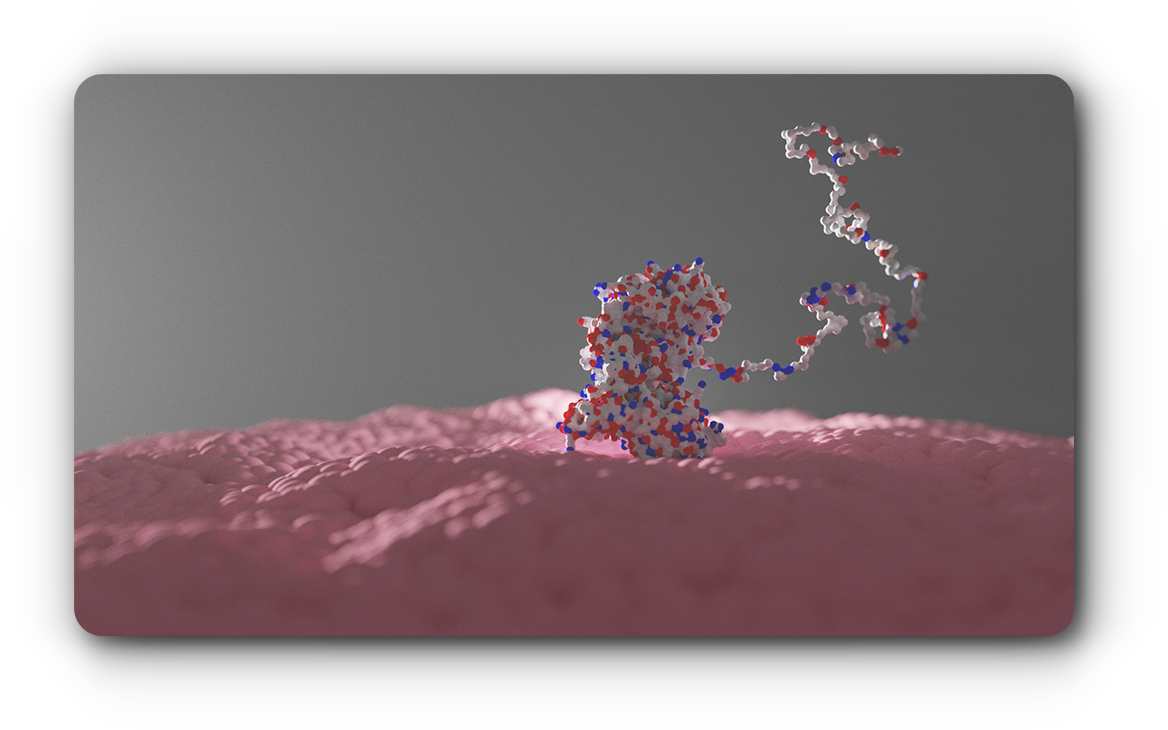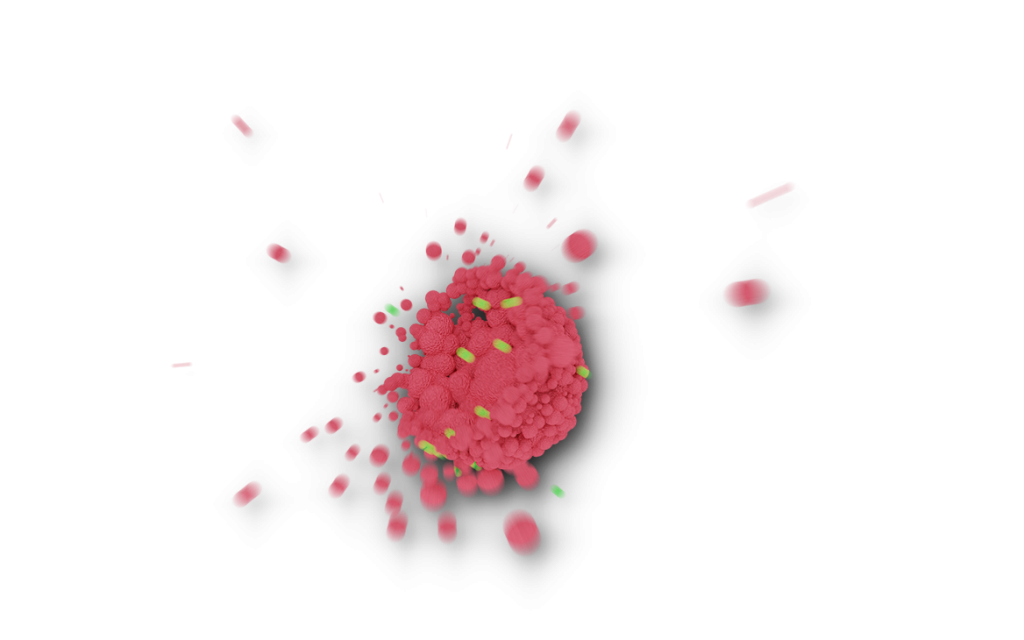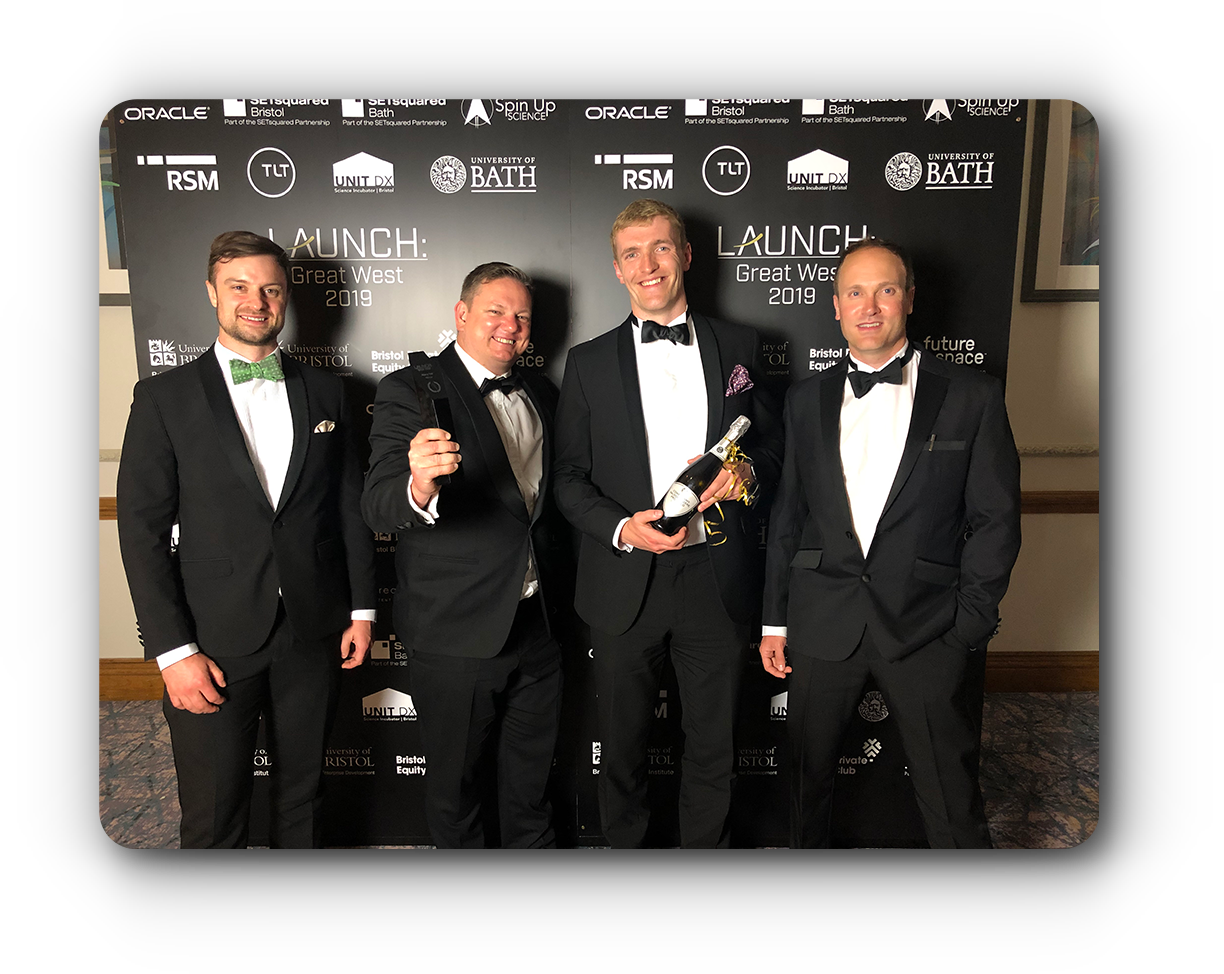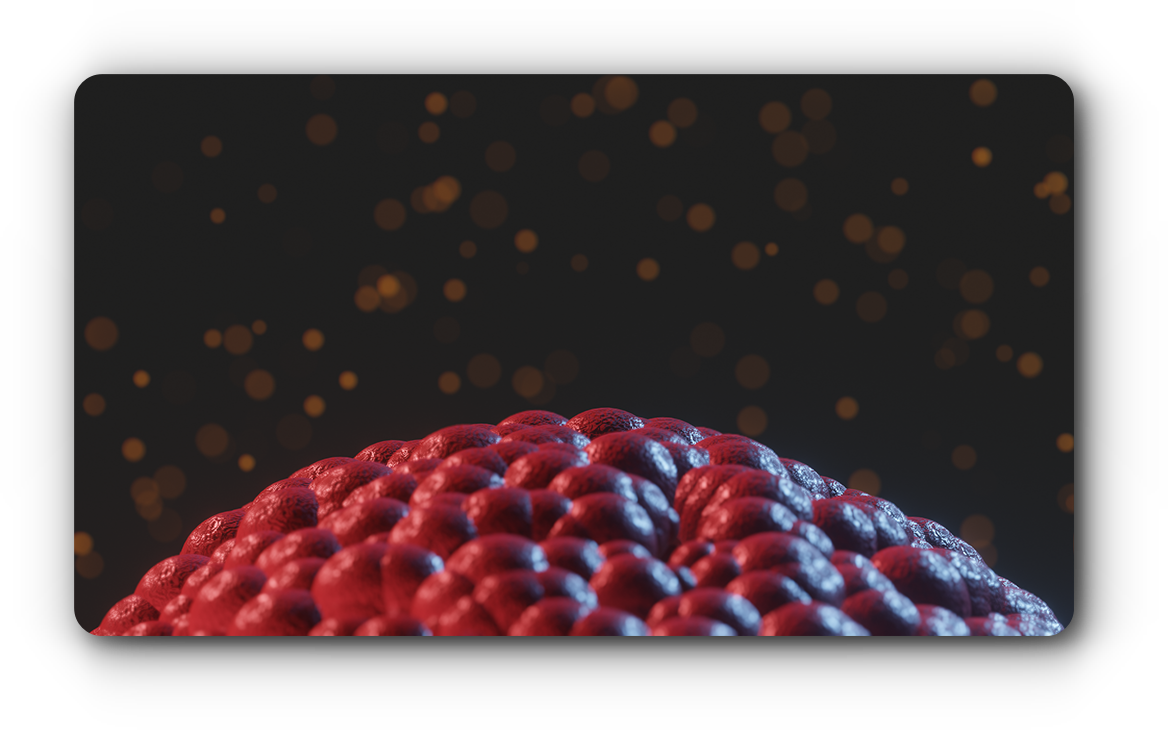Cell therapies represent a new era of living medicines. Stem cells are able to remodel and regenerate tissues, and your immune cells regularly fight-off disease. Current cell therapies face 3 major challenges, though: delivery efficiency, survival, and maintaining function. CytoSeek is developing its artificial membrane-binding protein (AMBP) technology to address the unmet needs in the cell therapy industry.

AMBP technology involves producing protein-based constructs that spontaneously insert into the membranes of cells—we call these ‘anchors’. These anchors are naturally-occurring proteins that we’ve redesigned to make their surface more positively-charged, before coating them in a negatively-charged surfactant. These anchors are then fused to other proteins or enzymes to create constructs with new functions. To coat cells with these constructs, you simply add our AMBPs to a cell culture, wait for a few minutes, then wash off any excess. This process enables virtually any cell to be augmented with a range of functions. Cells from human donors are capable of destroying cancerous tissue—in 2018 two cell-based drugs were approved for treating types of liquid tumours (such as leukaemia). Solid tumours, though, fight back by suppressing immune cells.

Just a Quick Note:
InnovationsOfTheWorld.com has partnered with Trade License Zone (TLZ) to support global innovators looking to expand internationally. Take advantage of the UAE’s Free Zones—enjoy streamlined setup, low corporate taxes, and a strategic gateway to the Middle East and beyond.
Get Your UAE Free Zone License Fast & Easy!At CytoSeek, we are developing AMBPs to coat immune cells with proteins that reduce the suppressive effect of solid tumours. Our mission is to enable the first cell therapies that can destroy solid tumours, and improve the lives of millions of people worldwide diagnosed with cancer every year.

AMBPs were developed in Professor Adam Perriman’s lab at the University of Bristol. CytoSeek spun-out of the lab in late-2017, and has recently raised a £1M seed round to translate the technology from the lab bench towards patients’ bedsides. Our AMBP approach is radically different to the current state-of-the-art. The typical approach is to genetically-modify cells using viruses to make them produce proteins that target cancer tissue. This method costly—the first cell therapies were estimated to cost approximately £50,000 per dose to manufacture. CytoSeek’s approach doesn’t require genetic manipulation: our AMBPs insert spontaneously into the membrane on the surface of cells simply by mixing them together.
We are currently engaged in proof-of-concept studies to demonstrate enhancement of cell therapies for cancer, heart disease, osteoarthritis, and diabetic wound healing. We are looking to partner with cell therapy companies to bring these products to the clinic and ultimately enhance human health.

CytoSeek’s breakthroughs open the door for the development of a non-toxic, non-immunogenic and non-GM cell functionalisation technology that can provide homing, adhesion, immunomodulation and hypoxia resistance to therapeutic cells. Excitingly, we are only scratching the surface of what can be achieved with this technology. As the use of cellular therapies grows, so will the need to rapidly tailor cells to specific environments. The cell-therapy market in Europe is second only to the Americas.
Within Europe, the UK has the highest number of advanced therapy companies. Cell therapies are a key part of the UK Government’s future growth strategies: in 2018, the UK pledged £188 M in the Industrial Strategy Fund to invest in leading-edge medicines manufacturing, including £12 M to the Cell & Gene Therapy Catapult to accelerate cell therapy development.

Bristol is quickly becoming a hub for science spin-outs and start-ups. CytoSeek is a member of Unit DX, a science incubator, which launched in 2017 and is now home to 32 companies.
There are now plans to build 2 more facilities in the coming years, termed Unit DY and Unit DZ, to meet demand. CytoSeek was awarded the ‘Rising Star’ award at the inaugural Launch Great West awards event, run by Spin-up Science, in May 2019.













